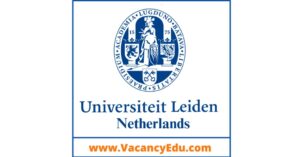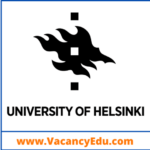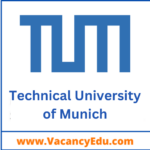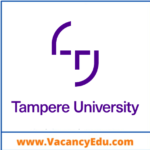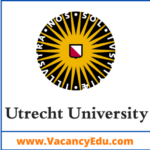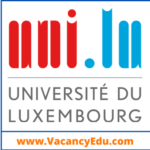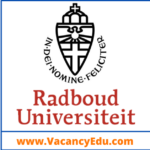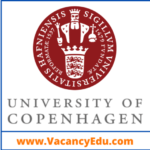Leiden University, Netherlands invites online Application for number of Fully Funded PhD Degree at various Departments. We are providing a list of Fully Funded PhD Programs available at Leiden University, Netherlands.
Eligible candidate may Apply as soon as possible.
(01) PhD Degree – Fully Funded
PhD position summary/title: PhD in Deep learning for Electron Microscopy pipelines (1.0 fte)
As a PhD student, you will be embedded in the research groups Computational Imaging and Deep Learning (CIDL) and Applied Quantum Algorithms (aQa), part of the Leiden Institute of Advanced Computer Science (LIACS). The CIDL group develops cutting-edge techniques for advanced computational imaging systems, combining expertise from Mathematics, Computer Science, and Physics. The aQa group studies quantum algorithms and their applications to problems in natural sciences (physics, chemistry) and practical computing (machine learning, AI, optimization), and methods to make them compatible with near-term quantum devices.
Your project, “Deep learning for Electron Microscopy pipelines (DEEM), focuses on the application of deep learning methodologies to enhance electron microscopy (EM). The research addresses existing challenges within EM, such as image noise, artifacts, the optimization of acquisition parameters, and the integration of information from various EM techniques. The overall goal is to improve the output of EM systems and potentially extend their experimental capabilities by integrating deep learning throughout the imaging workflow, from data acquisition to final analysis.
Deadline : 10 July 2025
(02) PhD Degree – Fully Funded
PhD position summary/title: PhD candidate on molecular details of plant-bacteria clock interactions
We are hiring a PhD candidate to join our ERC-funded team on chronomicrobiology, a new field that bridges microbiology and chronobiology. The MicroClock program follows up on our novel discovery of a circadian clock in Bacillus subtilis. This PhD opportunity focuses on uncovering the molecular details of the bacterial circadian clock during interaction with the model plant, Arabidopsis thaliana. The PhD candidate will employ molecular biology tools to follow circadian gene expression in Bacillus subtilis as it colonizes the plant root. This work will be carried out in collaboration with our consortium partners at the John Innes Centre and LMU Munich. The PhD candidate will learn chronobiological principles and experimentation and be a key part of discovering a cross kingdom circadian system. The PhD candidate will be involved in an interdisciplinary, innovative project in a productive scientific environment with a good work-life balance.
Deadline : 30 June 2025
Looking for more Postdoctoral Positions Click Here
(03) PhD Degree – Fully Funded
PhD position Position summary/title: PhD Candidate, Secure Computation Technologies and Applications to Machine Learning
Secure Computation Technologies, such as Multiparty Computation, allow the purposeful processing of private data (distilling value from such data), without compromising the privacy of this data. Today’s interconnected world, smart applications, and global business, necessitating the use of collaborative analytics, require the collection and processing of private information. In this PhD trajectory you will be exploring ways and developing protocols and primitives that enhance the security, functionality, and efficiency of secure computation technologies (e.g., multiparty computation – MPC), when designed for particular application scenarios, such as private machine learning use-cases.
Deadline : 31 July 2025
(04) PhD Degree – Fully Funded
PPhD position Position summary/title: Ph.D. candidate in organic chemistry – chemical biology – targeted protein degradation
Carbohydrate metabolism is closely associated with health and many diseases and relies mainly on glycosidases and glycosyltransferases: carbohydrate processing enzymes that break and create glycosidic bonds, respectively. Controlling their activities is vital for understanding pathological processes, and developing therapeutics for glycan- related diseases. Recently, new targeted protein degradation (TPD) technologies, which disable disease-related proteins by degradation, have opened therapeutic possibilities for proteins that are otherwise hard to inhibit. While TPD within the cytoplasm, cell membrane, and extracellular space can be achieved with current approaches, proteins in the Golgi apparatus can not be degraded by means of the current methods. SWEET DEGRADATION aims to develop strategies that allow for the first time the degradation of proteins located in the Golgi apparatus, opening ways for a new therapeutic modality. Recent contributions of our research group in the field include Chem. Sci. 2024, 15, 15212-15220, Chem. Sci. 2023 14, 13581-13586 and J. Am. Chem. Soc. 2022 144, 14819-14827.
Deadline : 22 June 2025
(05) PhD Degree – Fully Funded
PhD position Position summary/title: Ph.D. candidate in biochemistry / cell glycobiology / targeted protein degradation
If you are passionate about pursuing a career in chemical biology and targeted protein degradation, and you are eager to be trained at one of the leading European institutes in chemical biology, this innovative project offers the perfect opportunity for you.
Deadline : 22 June 2025
Click here for “Postdoc Application Cover Letter Template”
Click here to know “How to write a Postdoc Job Application or Email”
(06) PhD Degree – Fully Funded
PhD position Position summary/title: PhD Avian Neurobiology
Vocal communication is a fundamental aspect of social interactions for a wide variety of species. In particular, humans and songbirds have evolved specialized neural circuits to finely perceive and adaptably produce a variety of vocal signals. This project aims to increase our understanding of how these circuits and vocal behavior are shaped by social experience. To do so, we will employ state-of-the art electrophysiological and behavioral recording methods as birds freely engage in dynamic vocal interactions. This neuroethological approach will reveal how complex streams of acoustic input are processed to produce context-dependent vocal responses and socially coordinated behavior. The successful candidate will carry out this work as part of a diverse international research team, supervised by Dr. Jonathan Benichov.
Deadline : 8 July 2025
(07) PhD Degree – Fully Funded
PhD position Position summary/title: PhD in Machine Learning for Quantum Systems
We are looking for PhD candidates interested in research at the intersection of machine learning (ML) and quantum many-body physics.
The successful candidate will work with Dr. Anna Dawid and Dr. Hao Wang on developing new ML approaches to challenging quantum problems, with a strong focus on making these approaches interpretable, reliable, and scalable. In this position, you will learn about state-of-the-art deep learning solutions as well as the challenges of using neural networks as representations of quantum states. You will be given an increasing amount of scientific freedom supported by structured mentoring that includes career development plans guided by your plans after the PhD. The starting date is flexible, the latest in December 2025.
The position is set in the exciting, friendly, and interdisciplinary environment of the aQa (applied quantum algorithms) group, which is a team of faculty, postdoctoral researchers, and students across the Leiden Institute of Physics (LION), the Leiden Institute for Advanced Computer Science (LIACS), the Leiden Institute for Chemistry (LIC), and the Leiden Mathematical Institute (MI) at the Leiden University.
Deadline : 23 June 2025
(08) PhD Degree – Fully Funded
PhD position Position summary/title: PhD Candidate in AI for Network Analysis
Are you eager to contribute to cutting-edge research at the intersection of AI and network science/social network analysis in a vibrant academic environment? Leiden University invites applications for a PhD position in AI for Network Analysis, starting as early as September 1, 2025.
We are looking for a motivated and talented early-career researcher with a strong interest in social network analysis, complex networks, or network science, and relevant background knowledge on methods in machine learning and AI. The successful candidate will focus on innovating the field of network analysis with AI methods. Examples of topics include algorithmic fairness in network analysis, developing network embedding frameworks for real-world network datasets or AI models based on agentic LLMs for simulating real-world network data. The candidate is furthermore encouraged to propose their own research direction related to AI methods for advancing network analysis.
Deadline : 29 June 2025
Click here to know “How to Write an Effective Cover Letter”
(09) PhD Degree – Fully Funded
PhD position Position summary/title: PhD: Modeling the mechanical regulation of plant development and regeneration
The opening is for a research position within the field of mathematical or theoretical biology, computational physics, applied mathematics or computational science. This PhD project is part of the Gravitation programme GreenTE (Green Tissue Engineering), a multidisciplinary consortium of 7 Dutch universities. Together, GreenTE will unravel how plants sense and respond to mechanical stimuli. These fundamental insights will be the basis to develop engineering interventions to improve plant regeneration, seed longevity and defenses against disease. The successful applicant will be an integral member of the GreenTE community, which offers an open, diverse and inspiring environment to engage in multidisciplinary mechanobiology research at the intersection of biology, chemistry and physics, and is expected to participate in GreenTE events, training and collaborations.
Deadline : 30 June 2025
Connect with Us for Latest Job updates
(10) PhD Degree – Fully Funded
PhD position Position summary/title: PhD position: Electrochemistry of functionalized graphene membranes in fuel cells
For a successful energy transition wherein green hydrogen is synthesized and consumed at a large scale, alternatives to poly- and per-fluoroalkyl membranes are necessary. Atomically thin 2D materials such as functionalized graphene have been identified as potential candidates for selective proton transport.
The project explores graphene as a working electrode and uses voltammetry techniques to establish correlations between the chemistry of the electrochemical active site and impact on transmembrane proton translocation.
The project aims to develop new methods and devices routed on the chemistry of 2D materials and the functionalization of graphene to store chemical energy and drive chemical reactions in fuel cells and electrolyzers.
The PhD students will be supervised by Grégory Schneider and Dennis Hetterscheid (Leiden Institute of Chemistry), and work in close collaboration with the teams at the Max Planck Institute of Microstructure Physics (Prof. Xinliang Feng) and at the Dresden University of Technology (Prof. Thomas Heine).
Deadline : 30 June 2025
(11) PhD Degree – Fully Funded
PhD position Position summary/title: PhD Candidate on Expressivity of Imperative Programs
The semantics of programming languages are often modeled as abstract machines that evolve through interaction with their environment, raising the question of whether every machine behavior can be captured by a program in a given language. This question has practical implications, such as in compiler optimizations and decompilation for tasks like malware analysis. However, theoretical limits exist: languages lacking non-local control flow constructs like goto or break cannot express all machine behaviors. This issue, rooted in debates dating back to the 1980s, continues to inspire research, especially into the expressiveness of structurally constrained control flows. This PhD project explores these questions through the lenses of programming languages, automata theory, and process algebra.
Deadline : 30 June 2025
Polite Follow-Up Email to Professor : When and How You should Write
(12) PhD Degree – Fully Funded
PhD position Position summary/title: PhD position: Catch and release – Anderson localizaton of electrons in metal-halide perovskites.
Do you want to study the flow of electrons and vibrations on ultrafast timescales (ps to ns) in materials that are very relevant to the energy-transition? Are you looking for a challenging project involving semiconductor synthesis and advanced ultrafast laser spectroscopy? Would you like to work in a friendly and collaborative environment? Then you might want to join our young team as a PhD candidate!
Deadline : 30 June 2025
(13) PhD Degree – Fully Funded
PhD position Position summary/title: Three Ph.D. positions in crisis management
Project 1: Towards robust crisis detection and response mechanisms
It is, of course, best to nip a crisis in the bud. When a looming crisis is in its earliest stages of development, it may be still possible to intervene with relatively low costs and high chances of success. Unfortunately, it is not always easy to recognize an unfolding crisis. The list of organizations and governments that somehow missed a crisis is very long.
This PhD project seeks to uncover success factors. The PhD student will study how organizations create systemic cultures of alertness that help to detect signals of emerging threats. The project will build on the theory of high reliability organisations (HROs). This project will explore whether HRO principles help to detect crises in a timely way. It will focus on the recognition and handling of so-called anomalous events. It will study HROs that routinely deal with the challenge of threat recognition in the three threat domains (e.g., public order disturbances, pandemics, and extreme weather).
Project 2: Towards high-performing crisis response networks
When government actors initiate a crisis response, it is important to identify problems, formulate solutions, and ensure their implementation in a timely and acceptable fashion. The Covid-19 crisis demonstrated just how challenging this task can be. The crisis literature suggests that four types of activities are key to effective problem-solving in times of crisis:
Information management: governments need to collect, select, and process relevant information that sheds light on the causes and consequences of crisis-induced problems and the possible solutions that might be tried.
Critical decision-making: governments need to identify and prioritise solutions that will limit the impact of the crisis.
Collaborative management: governments must implement their solutions, and they cannot do this alone. They must work with other government organisations (including foreign and international organisations). They must align their knowledge, priorities, and resources with those of community and private actors to co-produce an integrated approach to arrive at coherent responses.
Crisis communication: governments will find it hard to produce an effective and legitimate response without the help of the population. They will need to inform, engage, and persuade citizens. In addition, it is important to inform all the members of the response network. The challenge is to offer a convincing narrative in the face of many competing counter-narratives. This project investigates the success and failure factors in the fulfilment of these four tasks in a detailed comparison of governmental responses to the same type of crisis (for instance, the Covid-19 pandemic in the Netherlands, Germany, Denmark, and Sweden).
Project 3: Ethics of crisis leadership
Crisis leaders must often choose between policy options that embody conflicting values. These moral dilemmas are particularly likely to occur in high-stakes situations with a necessity to act under conditions of deep uncertainty. In the context of the Covid-19 crisis, for instance, leaders had to weigh the importance of health protection against the freedom of movement.
This situation pitched the interests of the majority against those of a sizeable minority (think of curfews and vaccine passports).
This project will study how crisis leaders may develop and employ an ethical approach to decision-making in times of crisis. It will employ a case-study approach, investigating the decision-making processes in a small set of well-documented crises (for example, the Cuba Missile Crisis). It will study how crisis leaders handle ethical concerns raised by politicians and journalists. Moreover, it will study how perceptions of ethical decisions affect the perceived legitimacy of governmental crisis management performance.
Deadline :17 June 2025
About Leiden University, Netherlands –Official Website
Leiden University (abbreviated as LEI; Dutch: Universiteit Leiden) is a public research university in Leiden, Netherlands. It was founded as a Protestant university in 1575 by William, Prince of Orange as the first university in the Netherlands.
During the Dutch Golden Age scholars from around Europe were attracted to the Dutch Republic for its climate of intellectual tolerance. Individuals such as René Descartes, Rembrandt, Christiaan Huygens, Hugo Grotius, Benedictus Spinoza, and later Baron d’Holbach were active in Leiden and environs.
The university has seven academic faculties and over fifty subject departments, housing more than forty national and international research institutes. Its historical primary campus consists of several buildings spread over Leiden, while a second campus located in The Hague houses a liberal arts college (Leiden University College The Hague) and several of its faculties. It is a member of the Coimbra Group, the Europaeum, and a founding member of the League of European Research Universities.
The university has produced twenty-six Spinoza Prize Laureates and sixteen Nobel Laureates. Members of the Dutch royal family such as Queen Juliana, Queen Beatrix, and King Willem-Alexander are alumni, and ten prime ministers of the Netherlands including Mark Rutte. US President John Quincy Adams also studied at the university.
Disclaimer: We try to ensure that the information we post on VacancyEdu.com is accurate. However, despite our best efforts, some of the content may contain errors. You can trust us, but please conduct your own checks too.
Related Posts
- 08 Postdoctoral Fellowship at University of Helsinki, Finland

- 11 Postdoctoral Fellowship at Technical University of Munich, Germany

- 04 Postdoctoral Fellowship at Tampere University, Finland

- 06 Postdoctoral Fellowship at University of Bern, Switzerland

- 04 Postdoctoral Fellowship at Utrecht University, Netherlands

- 34 Postdoctoral Fellowship at University of Luxembourg, Luxembourg

- Postdoctoral Fellowship (05) at Radboud University, Nijmegen, Netherlands

- Postdoctoral Fellowship (26) at University of Copenhagen, Denmark

- 03 Postdoctoral Fellowship at Durham University, England


